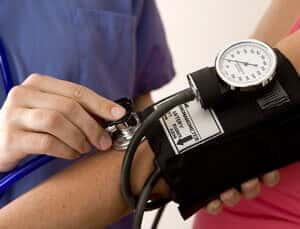
Can popular blood pressure drugs increase serious cancer risks?
In May a front-page article in the Wall Street Journal blew the lid off an internal squabble at the FDA regarding a very popular class of blood pressure drugs called ARBs (angiotensin receptor blockers) and lung cancer. You can learn more about this new finding at this link.
These drugs include:
ARBs (Angiotensin Receptor Blockers)
- Atacand (candesartan)
- Avapro (irbesartan)
- Benicar (olmesartan)
- Cozaar (losartan)
- Diovan (valsartan)
- Edarbi (azilsartan)
- Micardis (telmisartan)
- Teveten (eprosartan)
Now a whole different class of blood pressure medications called calcium channel blockers (CCBs) has been linked to breast cancer in women. An epidemiological study published in JAMA Internal Medicine (Aug 5, 2013) analyzed data from a 3-county area around Seattle. Women who used CCBs for more than a decade were more than twice as likely to be diagnosed with invasive ductal or lobular breast cancer compared to controls. Here is a list of such drugs:
Calcium Channel Blockers:
- Amlodipine (Norvasc)
- Diltiazem (Cardizem)
- Felodipine (Plendil)
- Isradipine (DynaCirc)
- Nicardipine (Cardene)
- Nifedipine (Adalat, Procardia)
- Verapamil (Calan, Covera, Isoptin, Verelan)
According to the investigators: “Considered together, the major forms of antihypertensive medications are the most commonly prescribed class of drugs in the United States.”
The total number of prescriptions filled in 2010 for CCBs and ARBs was over 181,000,000. That means that millions of people are taking such medications on a daily basis.
The researchers point out that:
“Despite the widespread use of antihypertensive agents, relatively few studies have characterized how use of different classes of antihypertensives are related to breast cancer risk.”
This points up a tremendous flaw in Food and Drug Administration’s system for approving and monitoring medications. Although the FDA often requires drug companies to test new compounds for carcinogenicity in animals, the agency doesn’t seem to know what to do with this information once it is obtained.
Even when a drug tests positive for cancer in an animal model it is frequently approved anyway. For the most part, the FDA has not required long-term follow-up in humans of drugs that might be suspected of causing cancer in animals. For example, the diabetes drug Actos (pioglitazone) produced bladder tumors in rats. There are data to suggest the drug is linked to bladder tumors in humans (it has been banned in France and Germany because of this). But the FDA seems stymied about how to deal with this potential problem.
Is it any wonder that physicians and patients are confused by cancer warnings in official prescribing information or by reports of cancer from medical journals? A conclusion like the one in JAMA Internal Medicine about CCBs is alarming:
“In summary, this study provides evidence that longterm recent use of calcium-channel blockers may be associated with an increased risk of breast cancer. Further efforts to confirm this association are needed and are of public health importance, given that antihypertensive drugs are the most commonly prescribed class of medication in the United States.”
Silence from the FDA about this study is not reassuring.
BOTTOM LINE:
First, you may find an article we wrote on high blood pressure of interest: “Hypertension Heresy: Are We Overtreating High Blood Pressure?”
Second, you may be relieved to learn that the study in JAMA Internal Medicine noted “a reduction in breast cancer risk associated with long-term use of ACE inhibitors.” These are drugs like captopril, lisinopril and ramipril.
Never stop taking any medication without discussing it with your doctor. If you are a woman with risk factors for breast cancer or a history of this disease, make sure your physician reads the new study carefully and schedule time to talk about the data. It is possible that you might be a candidate for a different type of blood pressure medicine.
Please let us know your thoughts about this issue below. If you have a story to share we would like to hear about it as well. You may also find our Guide to Blood Pressure Treatment of value.

